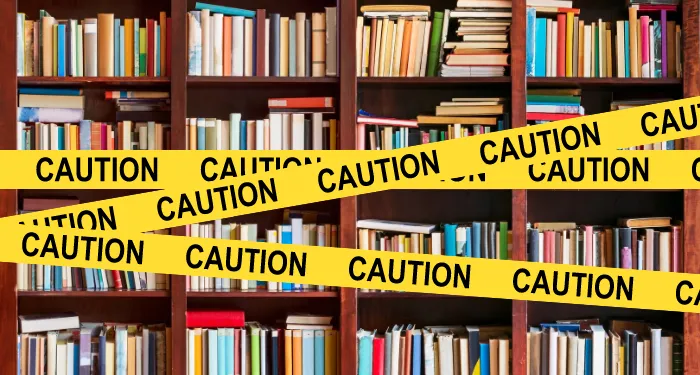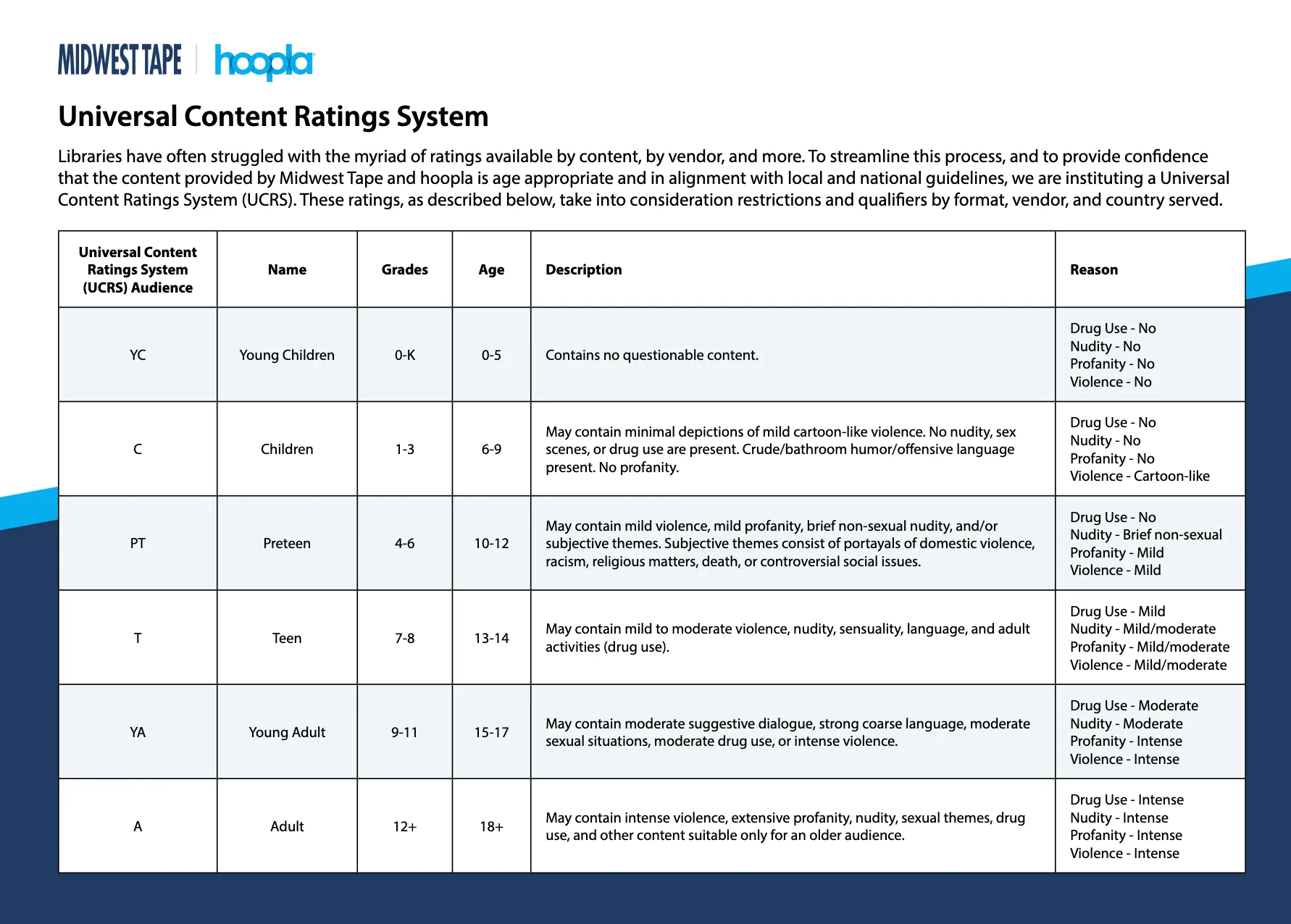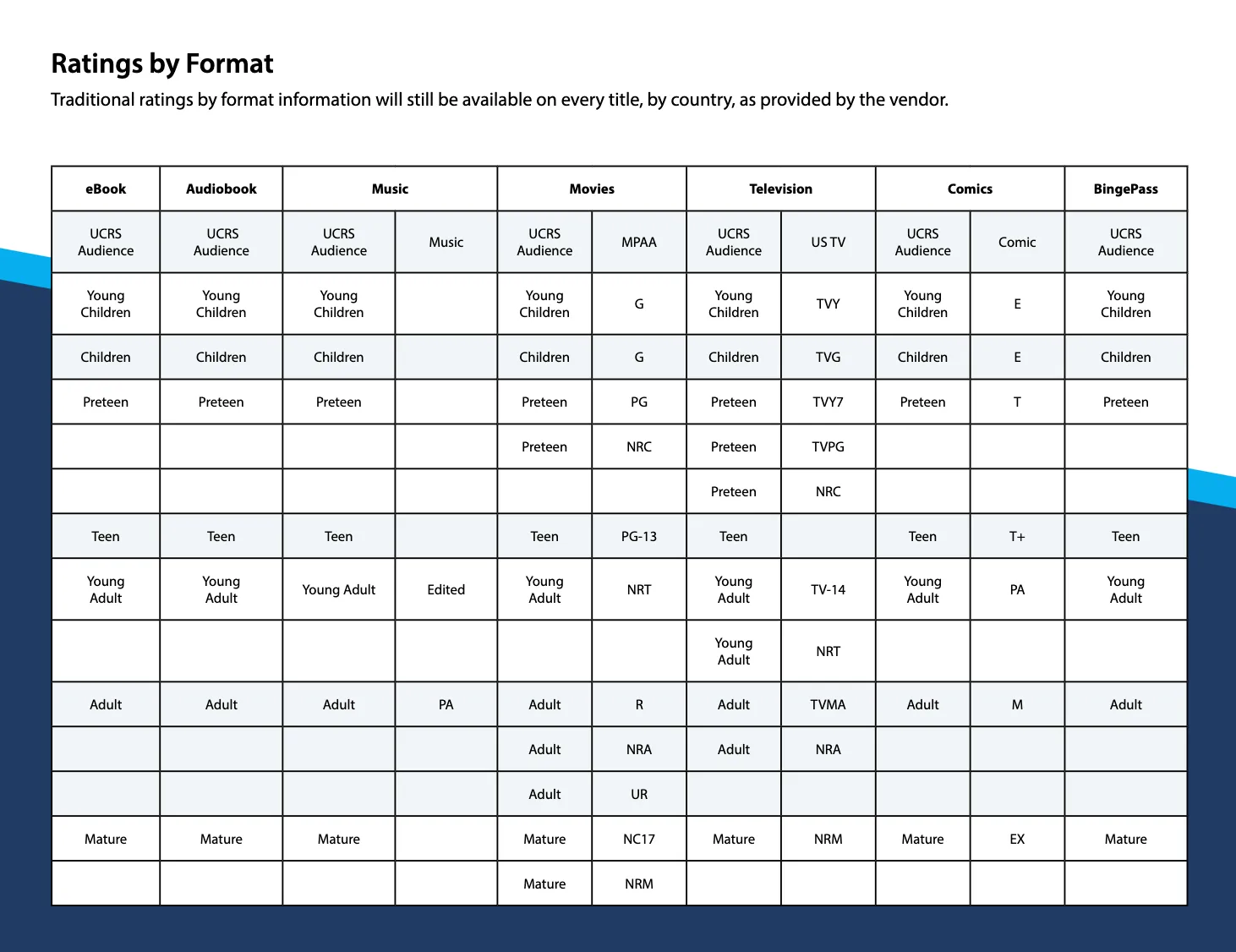
Why Is Midwest Tape/hoopla Creating a New Rating System for Library Purchases?
Library workers likely missed the update from Midwest Tape/hoopla, distributor of audiovisual materials and digital materials. In an email that went out to subscribers June 18 with the subject “Coming Soon! Ghostbusters: Frozen Empire – Order Now!,” the distributor announced a change coming soon. They would be implementing a new ratings system on all of their materials.
Midwest Tape and hoopla’s new system is called the Universal Content Ratings System. Per the link in the announcement, “Libraries have often struggled with the myriad of ratings available by content, by vendor, and more. To streamline this process, and to provide confidence that the content provided by Midwest Tape and hoopla is age appropriate and in alignment with local and national guidelines, we are instituting a Universal Content Ratings System (UCRS). These ratings, as described below, take into consideration restrictions and qualifiers by format, vendor, and country served.”
Except, libraries haven’t struggled with ratings systems for materials. Books come with age ratings on them, and audio and visual material also utilize ratings on them (see the MPAA ratings). Library workers use their knowledge, expertise, professional experience, and an array of review resources to determine whether or not to acquire material.
This new ratings system comes with no background on its development nor any information on its provenance–both of which are key factors in aiding library workers in determining whether or not information is from a reliable source. Who is determining what constitutes a certain degree of nudity or violence here? What differentiates moderate from intense nudity? Where would a puberty ebook written for 7-10 year olds fall here if there is no drug use but images of, well, nudity because puberty involves the physical body? None of these questions are answered nor addressed.
This ratings system, with a name identical to the one created by Moms For Liberty on BookLooks (“Universal Book Content Rating,” utilizing a 0-5 scale akin to the YC-A here), is below:


It is not explicitly stated whether or not these ratings would only be seen by librarians as they make their purchases, but the language makes it sound like these will be ratings added to materials in addition to the age and rating information that already exists.
Per the American Library Association’s Bill of Rights, rating systems are a violation of patron rights. This leads to the question of how material that appears on hoopla or is distributed to libraries via Midwest Tape will be rated and where it might violate the ethics and spirit of the American public library–and it again begs the question of where did these ratings come from? None of these questions are answered in Midwest Tape’s email. Instead the email simply reads that, “to address the growing need for an age-appropriate ratings system, we will be launching a Universal Content Ratings System on MidwestTape.com within the coming weeks. This system will provide librarians with valuable information to help make informed decisions about content, including new data points on every title across all formats, such as Audience, Age Range, and Grade Level.”
Only one state in the US has codified and implemented a law that requires vendors to rate materials and that’s Tennessee. The law in Texas is currently on pause as it moves through the Circuit Court system, as it was challenged as unconstitutional. A ratings system created by a vendor like Midwest Tape/hoopla is one way to hoist responsibility of material onto the already overworked positions of library workers. If someone has a problem with a rating as given on hoopla, they complain to the library and not the vendor. A vendor profiting from libraries in this case is electing to put additional liability on their customers via a system that they invented to “help” them. Ratings systems are not a solution. They’re contributing to the problem of censorship, rather than fighting it.
These ratings are the perfect tool for silent/quiet censorship, already a major problem in libraries nationwide. Even in learning about the new system, at least one library worker blatantly shared that it would help them decide to simply elect not to buy material “because budget.” That is censorship and it’s an unethical practice for any library worker.
This isn’t the first time Midwest Tape/hoopla has made decisions that counter the purpose and ethos of the public library. In 2022 it was found that the hoopla service was filled with anti-vaccine, Holocaust denial, and pro-LGBTQ+ conversion materials.
Libraries have options. When vendors take these paternalistic and patronizing positions to their customers, they can’t be surprised when those customers are not only angry but take their business elsewhere.









